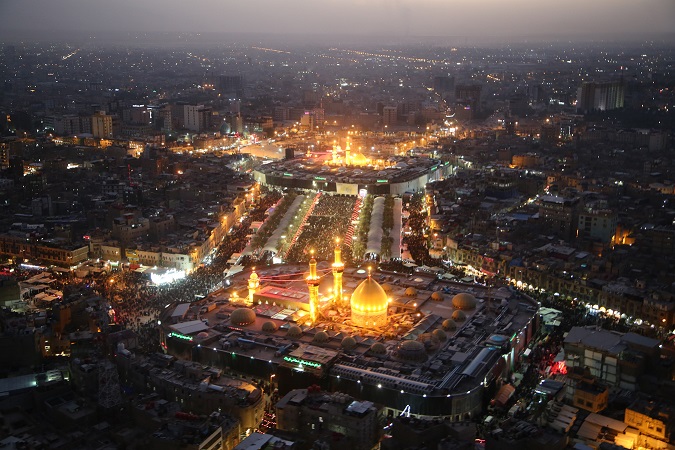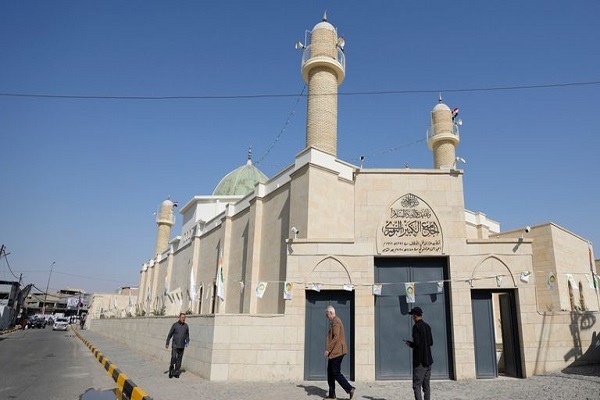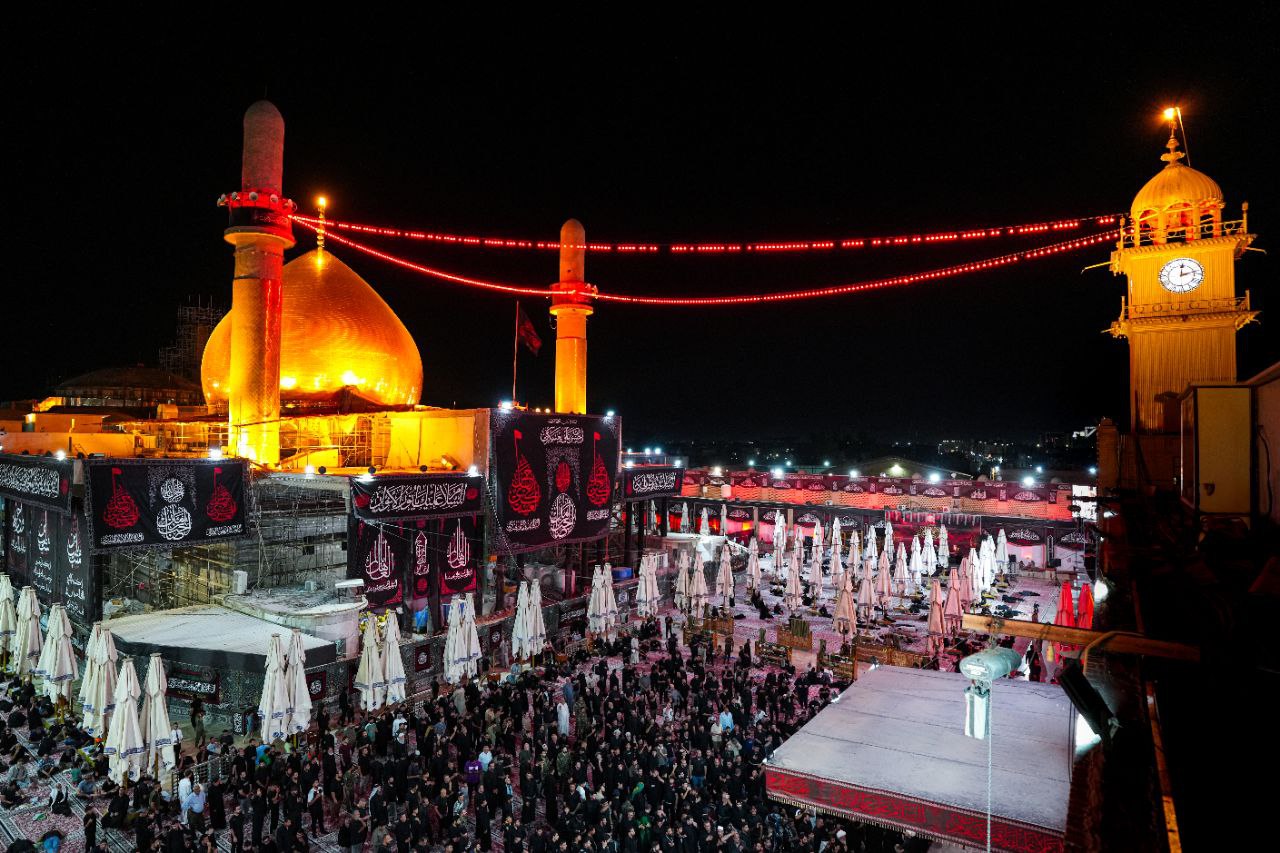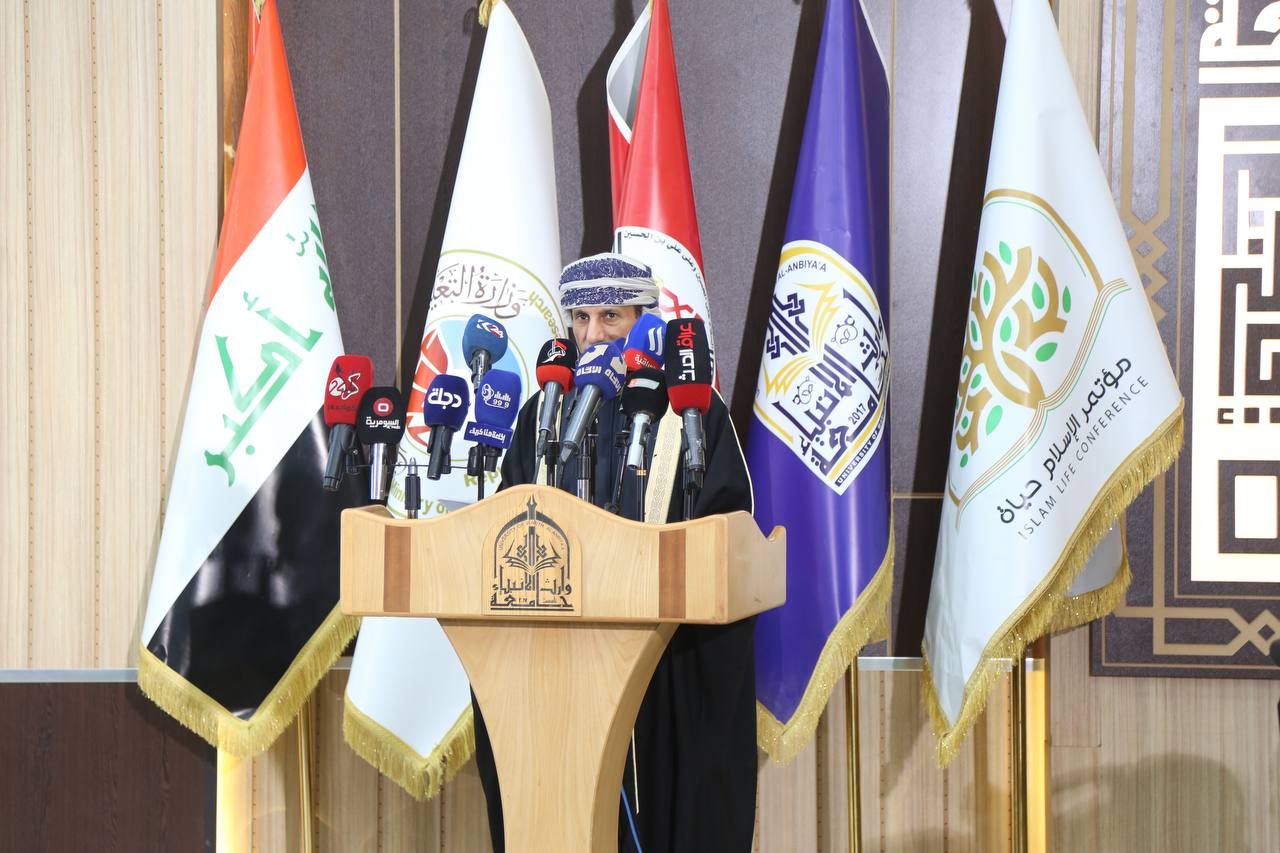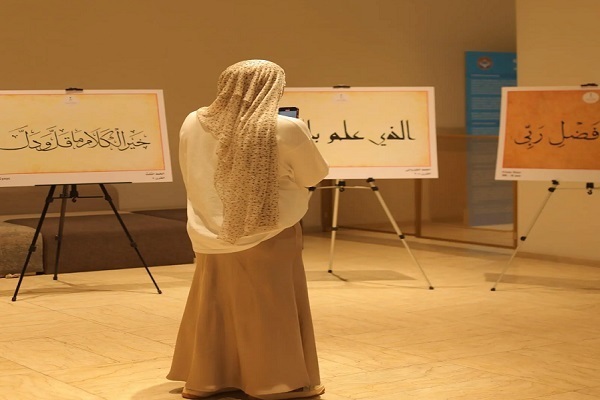Imam Hussain and Human Rights
Introduction
Allah has honoured man by regarding him as superior to other creatures in the verse: {We have honoured the children of Adam and carried them on both land and sea, and we have provided them with good things and greatly preferred them over much of what we have created} (Quran 17:70).
By granting him reason, provision, and the ability to move on land and sea Allah has created man dignified. One of the highest manifestations of such honour of man is maintaining his human dignity, preserving his materialistic and moral rights, in addition to forbidding the transgression against any of his legitimate rights by anyone.
Islam has not confined its care to religious teachings and testaments; it has encouraged its followers to respect man and preserve his rights. Moreover, it legislated a large set of rules to maintain his rights and the necessity of granting them, while forbidding transgression against any of them.
In the Quran, there are about 200 verses which point out and explain that there are more than 100 rights that have been given to man. On the other hand, the Universal Declaration of Human Rights legislated by the United Nations in 10 /12 /1948 states only 29 articles pointing to basic human rights.
Furthermore, we find many Prophetic traditions and quotes from the Imams of the Ahlulbayt that are concerned with human rights. The Prophet Mohammed (PBUH) is narrated to have said: “A Muslim’s property, life, and honour are inviolable by a Muslim"(1). This quote points out that a man’s tangible possessions, such as his body and properties, and intangible possessions, such as dignity, thoughts and freedoms are to be respected.
For a man to enjoy such rights, a system based on social justice must exist. Allah has commanded us to be just in ruling and to forbid oppression. The Holy Quran has discussed the issues of justice, equality and scales of righteousness in fifty-five different verses. Allah has forbidden oppression and threatened oppressors with punishment in 320 verses throughout the Quran. Furthermore, the Quran discusses how oppressing others will have terrible consequences in this life and the hereafter.
1-Maniat al-Mureed, Second martyr, P. 327 Sahih Muslim P.968 No. 6541
This book briefly discusses how Imam Hussain consolidated human rights through his quotes, speeches and slogans during the battle of Karbala, emphasizing basic human rights as a core part of man’s dignity and as a guarantor of major liberties and freedom.
Finally, I pray to Allah that this book might be added to my efforts for Judgment Day, “The Day whereon neither wealth nor sons will avail, except for him who comes to Allah with a pure heart.” He may be praised and blessed. He is the one to pray to, the highest desire, the source of mercy and giving.
Dr. Shaikh Abdullah Ahmad Alyousif
Part One:
Imam Hussain and Human Rights
When studying the speeches, quotes and slogans of Imam Hussain during the battle of Karbala, we find that they focus on basic human rights as a fundamental part of man’s dignity and insurance for his rights and freedom. Below are some of the speeches and quotes in which Imam Hussain points to these rights:
1. Maintaining Man’s Dignity
One of the basic rights of man is maintaining his dignity from transgressions or degradation both physically and verbally. If we refer to the Universal Declaration of Human Rights, we find that it recognizes a human being’s dignity in its introduction. It also recognizes their equal rights as a basis for peace, justice and freedom. It argues that humanity seeks a world in which individuals enjoy freedom of speech, belief and actions. It is thus essential that laws protect humans and their rights from tyranny and oppression.
The introduction of the Universal Declaration of Human Rights adds that member states stressed in the foundational charter of the United Nations, issued on 26 /6 /1945, their belief in basic human rights, individual dignity and value in having equal rights and the determination to promote social progress. Member states were also determined to improve standards of living and advance freedom. Member states have promised, in cooperation with the UN, to ensure the respect of human rights and freedom.
In article (1) of the Declaration, states that people are born with equal rights and dignity. They are granted reason and conscience and have to deal humanely with each other. Article (2) states that every individual man enjoys the right and freedom mentioned in the declaration with no discrimination based on sex, colour, language, religion, political opinion, different views, national origin, social status, wealth, nor any other factors.
Imam Hussain focused on maintaining human dignity in his reformational uprising by refusing to be subjugated and preferring death with dignity to life in humiliation. He said: “Verily, the pretender [Yazid] and son of pretender have made us choose between humiliation and swords. And far from us is humiliation. Allah, his prophet, the believers, the honoured spirits, and the dignified souls reject our humiliation and prefer us not to submit to evil people but instead to face an honourable death"(1).
Imam Hussain rejects submitting to tyranny and enjoys no dignity granted by Allah to mankind. He chose the path of martyrdom in order to defend such dignity and reform the state of the nation. He said: “I have not rebelled for the sake of evil, fun, corruption, nor oppression. I have rebelled for the reformation of my grandfather’s nation. I seek enjoying good and forbidding evil"(2).
In another place, Imam Hussain said: “Nay… I swear by Allah, I do not submit to you meekly and never escape like slaves"(3). Imam Hussain preferred to die with honour than to live in humiliation with disrespect because a man loses his value when dignity is absent.
1- Al-Luhuf fi Qatla al-Tufuf, Ibn Tawos al-Hussaini P. 59
2- Bihar al-Anwar, al-Majlisi p.329
3- Al-Irshad, al-Shaykh al-Mufeed p. 263
2. Enjoying the Freedom
General and individual freedom are among the most distinguished rights of human beings. These include the right of belief and opinion. Islam respects freedom, considering it as one of the most important human values. It is a right of man, and he is supposed to enjoy it fully as Allah wishes: “He will relieve them of their burdens and of the shackles that weigh upon them "Holy Quran 7:157
Imam Ali is narrated to have said: “Never be a slave of others when Allah created you free” (1). In general, nobody has authority over others. However, this can only be exceptional with religious reference.
Imam Hussain pointed out the necessity of enjoying freedom. Moreover, he demanded his enemies to be free in their worldly life. He said: "If you adhere to no religion and fear no hereafter, then be free in your worldly life” (2). This quote points out that his focus on the value of freedom since man must be free in life even if he is not religious because freedom is required in itself, with which man feels his value. Imam Hussain said: “I find happiness in death and misfortune in living with oppressors” (3).
1- Meezan al-Hikma, part1, p.582
2- Bihar al-Anwar, al-Majlisi p.51
3- Mnaqib al abi Talib, Ibn Shahar Ashoob, p. 76
Death in honour and freedom is better than living in humiliation and oppression because man can never find happiness and dignity while being under oppression, tyranny and dictatorship. That was why Imam Hussain chose death over life.
3. Equality among People
Allah has created all people from the earth: “And of his signs that he created you from the earth and became humans scattered throughout the earth.” Holy Quran 30:20. This is why the white has no privilege over black nor does the Arab have privilege over non-Arab except in piety and good acts.
The Quran repeats that in other places stating that people were created from the earth, and they came from one soul. Allah says: “O mankind, fear your Lord, who created you from one soul and created from it its mate and dispersed from both of them many men and women.” Holy Quran 4:1
People are equal in their origin as our respectful Prophet said: “People are equal like comb teeth"(1). Islam rejects discrimination according to sex, colour, origin, sectarian belonging and any kind of discrimination between people created by Allah from one soul and one earth. Equality among people, as one of the most important elements of social justice, means maintaining equality in religion, law, opportunities, public positions, privileges and benefits, and rights and tasks.
The suffering and problems in societies throughout the world today refer in part to biases in daily life, the lack of opportunities and different ways of discrimination that lead to social backwardness and a lack of social justice. Equality means rejecting discrimination based on sex, language, nationality or region, and all are included within the oneness of human origin stated in the Quran: “O mankind, indeed we have created you from a male and a female and made you into nations and tribes that you might know one another. The noblest of you before Allah is the most righteous of you, Allah is the Knower, the Aware.” Holy Quran 49:13. Divinity and superiority are only in piety, not in tribe, sex, origin nor any other diversity of mankind.
Imam Hussain in the day of Karbala focused on such values by placing his holy check on John’s, the black slave who had been owned by Abu Dhar al-Ghufari and the Turkish young man Wadhih Bin Aslam. It is the same mere act he did with his son Ali al-Akbar, who was a sign of perfection and beauty in order to stress the equality and humanity among people. This manifestation is the essence of human value that is found within the values of Imam Hussain.
4. The Right to Elect the Ruler
Political freedom is an important side of human freedom. In other words, political freedom is a part of the main original right of human freedom. Political freedom has many aspects, including the right to elect a just ruler and reject the oppressor, because Islam has commanded us to apply justice and forbid oppression.
Islam professes equality in rights and tasks, equality in opportunity and the application of social justice. Imam Hussain practised his legitimate right to reject the pledge of loyalty to an oppressive ruler saying: “We are the members of the Prophet’s house, the essence of the message and who are often visited by angels. With us, Allah begins and ends. Yazid is a wicked man, an alcoholic, a killer of respected souls, and carries out debauchery. One like never grants a pledge of loyalty to one like him. We shall wait and see while you do who is more eligible for such a pledge in the ruling"(1).
Imam Hussain was a more eligible ruler than any others and could never pledge himself to a ruler that transgresses rights, treaties, keeps no promises and oppresses people.
Imam Hussain paid his life as a price for applying righteousness and invalidating falsehood. He says: “Don’t you witness that righteousness is not followed and falsehood is not rejected? Shall a believer seek meeting Allah righteously?” (1) For this reason and others, Imam Hussain revolted and rejected Yazid’s oppression and rule when he said: “One like me never grants a pledge of loyalty to one like him” (2).
Imam Hussain pointed out people’s right to elect a fair ruler and adhere to what Allah commands in applying justice and preventing oppression. An oppressive ruler that oppresses people transgresses people’s rights and commits injustice and tyranny has no right to take a pledge of loyalty. Imam Hussain demonstrated this practically when he rejected Yazid’s pledge of loyalty. Therefore, giving a pledge of loyalty to people like him is forbidden.
Part Two
Dealing with the Issue of Human Rights
Having recognized the contribution of Imam Hussain’s revolution concerning values and human rights, we have to learn from the Imam’s acts during and before the day of Karbala our tasks and responsibilities, especially as societies and individuals and our responsibility regarding the issue of human rights. We summarize them as follows:
1. Developing Awareness of Rights
We must become aware of treaties and declarations, both local and international, that deal with human rights in order to widen our awareness of individual and societal rights. One of the most important documents relating to human rights is the Universal Declaration of Human Rights issued by the General Assembly of the United Nations on 10 /12 /1948. This declaration was based on previous declarations starting from the French Revolution in 1789 that recognized the natural rights of individuals. This was then followed by many nation states including human rights in their constitutions after they became UN member states, although they did not adhere to them practically.
Reviewing the Universal Declaration of Human Rights, we find these rights and freedoms divided into:
1- Civil Freedom Rights
2- Political Freedom Rights
3- Social, Cultural and Economic Rights
We must develop an awareness of rights by reviewing treaties and declarations that deal with the issue of human rights. It is also important for us to read books written by religious scholars about this issue so that we may become aware of religious views and be able to check the references obligating us to respect such rights in the Quran, Sunnah, and reason.
The concept of human rights is made up of five elements: Justice, morals, freedom, tasks and rights. It is essential that we at least become aware of our tasks and rights.
2. Demand for Legitimate Rights
Human rights are a necessity without which man cannot live, so nobody has the right to confiscate them, and nobody must abandon his legitimate rights because in such cases man loses his humanity and dignity as a human being.
One must demand his legitimate rights so that he is not transgressed. He must never be silent. A society also must demand its rights be aware of them and know how to regain them. If a society is not aware of such rights, it will not be able to demand them. Demanding rights comes after a greater awareness of them.
3. Respect for People’s Rights
Transgressing the legitimate rights of man sometimes happens by the ruling authority in a country and transgressions sometimes occur from people against other people living in the same place. We would like to point this out here.
Respecting other people is required by religion and reason. Transgressing the legitimate rights of other people is forbidden no matter who does it. Respecting these rights is a must and an obligation.
No authority has the right to transgress the rights of people as well as people towards other people by confiscating their properties or degrading the status of their culture or religion. People must respect each other and cte for the good and righteousness as in the verse: “And help one another in righteousness and piety; but help not one another in sin and transgression” Holy Quran 5:2.
The Quran states that the diversity of people and tribes is good for greater human understanding of each another: “O mankind, indeed we have created you from a male and a female and made you into nations and tribes that you might know one another. The noblest of you before Allah is the most righteous of you. Allah is the Knower, the Aware.” Holy Quran 49:13
The existence of a diversity of religions, doctrines, sexes and tribes is not a justification for transgressing other people’s rights. All people must be equal against the law. There is no difference between black and white nor Arab and non-Arab. Superiority is in knowledge and piety.
Conclusion
Imam Hussain’s revolution for applying justice and rejecting oppression has formed the basis of human rights, values, and principles. This revolution has established an institution for teaching and developing a culture of human rights that are derived from Islamic values and laws. Making man adhere to high standards of religious values, human rights and Islamic morals is a goal of Imam Hussain’s revolution.
Another goal is the necessity of applying justice, and social equality, resisting oppression and revolting against oppressors who transgress human rights, and those of Allah. Imam Hussain revolted for reformation, enjoying good and forbidding evil, reviving the Sunnah, eliminating deviation, opposing oppression and working for the application of Allah’s rule throughout aspects of life, enjoying freedom, ensuring values of justice, righteousness, freedom and peace, boosting man’s dignity and implanting Islamic morals in society.
References and Resources
- The Holy Quran
- Ibn Shuba Alherani “Tuhaf Alaqol an Alarusool”
- Ibn Shahr Ashoob “Manaqib Al-Abi Talib”
- Ibn Tawoos “Alluhof fi Qatla Altufoof”
- Alrai Shehri “Mezan Alhekmah”
- “Sahih Muslim” by al-Qushairy al-Nisaboory
- “Muniat Almureed fi Adab Almofeed walmustafeed” by al-Ameli
- “Kitab al-Futuh” by al-Kufi
- “Bihar al-Anwar” by al-Majlisi
-“Al-Ershad” by al-Mufeed
Curriculum Vitae
for Dr. Shaikh Abdullah Ahmad Alyousif
-Dr. Shaikh Abdullah Ahmad Alyousif was born in the village of Hillat Muhaish, Qatif City, Eastern Province of Saudi Arabia in 1383 A.H. (1964 A.D).
-Sheikh Abdullah is an Islamic thinker and a scholar in the field of contemporary Islamic thought.
-He has the delegation and authorization of Islamic Historical narration from multiple Maraji (Religious Authorities).
-He has conducted advanced studies in Sharia Law in the Hawzah.
-He has a PhD in Fiqh and Islamic studies from Al-Mustafa International University.
-He is a teacher to many educated youths from different Islamic nations.
-He participated in multiple local and international conferences about Quran, Fiqh, science, and culture.
-He has been quoted in many books of great Islamic clerics, as well as in many credited internet websites.
-He has organized and presented many Islamic and cultural lectures on multiple TV channels. He was also hosted and interviewed on numerous radio channels.
-He has started and sponsored many religious and cultural events and volunteered in social activities.
-He has published more than fifty books about multiple topics including Fiqh, history, Islamic thought, youth, women’s studies, Islamic sociology, and many more.
